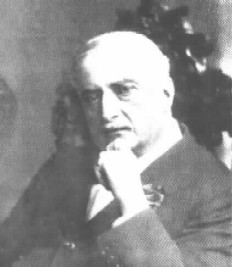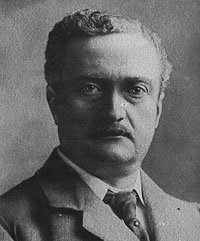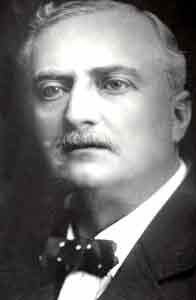|
|
|


John Redmond1856-1918 John Redmond John Redmond was born in Ballytrent, County Wexford in Ireland on 1st September, 1856. A nationalist by birth, whose father had been a nationalist Irish MP he was educated by the Jesuits in Clongowes Wood, one of Ireland's premier public schools, and then in Trinity College Dublin. He then studied in the Kings Inn in Dublin, becoming a barrister. However like his father he soon became involved in politics, being elected as an MP for New Ross for Charles Stewart Parnell's Irish Parliamentary Party in 1880. He served as MP for New Ross 1880-1885, North Wexford 1885-1891 and finally for Waterford City, from 1891 until his death in 1918. A devotee of Parnell, Redmond was passionately opposed to physical force nationalism, campaigning for Home Rule, a limited form of self government for Ireland within the United Kingdom. When the Irish Parliamentary Party split over Parnell's long-term sexual relationship with the wife of a fellow MP, Redmond sided with his deposed leader. He led the pro-Parnellite rump of the split party from Parnell's death in 1891 until the party itself healed its wounds and merged again in 1900, he being elected as its chairman (leader). The Home Rule party had been campaigning for nearly forty years for the right to have their own Parliament in Dublin to take care of domestic affairs but still maintain the link with Britain. The leader of this party in 1914 was John Redmond and when war broke out in August of that year he was to be influential in urging Irishmen to support the British war effort. He had been leader of that party since 1900. At that time the Party recognised that the biggest obstacles to Home Rule came from the House of Lords, the Conservative party and the Unionist Party itself. The second Home Rule Bill had been passed in the Commons in 1893 but rejected by the Lords.  John Redmond However, the rejection of Lloyd George's "People's Budget" by the Lords in 1910 was to be of great significance to the Home Rule Party. A General Election was called which resulted in a victory for the liberals but they were dependent upon the support of Redmond and his Party. Then came the Parliament Act of 1911 which meant that the Lords could delay the passage of Home Rule but could not veto it. The Third Home Rule Bill was introduced in April 1912 and this was to mark a high point in the political career of John Redmond. Home Rule was now only a matter of time. However, Unionists in Ireland mounted strong opposition to the Bill. In 1913 the Ulster Volunteer Army was set up to defy the government by force of arms if necessary. In 1914 the UVF successfully brought in a large consignment of guns and ammunition from Germany. 1913 also witnessed the formation of yet another private army in Ireland, namely the Irish Volunteers. They were under the leadership of the Nationalist, Eoin MacNeill and were totally committed to the cause of securing Home Rule for Ireland. John Redmond believed that members of the Irish Volunteers should also join the British army and in a speech in Co. Wicklow in September 1914 he pledged his support for the Allied cause and urged the Irish Volunteers to "account yourselves as men not only in Ireland but wherever the firing line extends in defence of right, of freedom and religion in this war." It is estimated that around 116,900 Irishmen fought in the war. However, John Redmond was unhappy with the British War Office in their refusal to recognise his ideas of separate and distinct Irish regiments and the distinguishing insignia its members should wear. In 1916 he said that "from the very first hour, our efforts were thwarted, ignored and snubbed". His own brother, Willie Redmond was one of the many who joined up but was killed in action in 1917. In the two years after the Easter Rebellion, nationalists began to support the Sinn Fein Party which supported complete independence from Britain instead of the Home Rule Party of John Redmond. In the General Election of 1918 the once powerful Home Rule Party was swept aside and the Sinn Fein candidates won an overwhelming victory. In the election the Home Rule Party was reduced to a mere six seats under the new leadership of John Dillon as Redmond had died in early 1918.  John Redmond |
